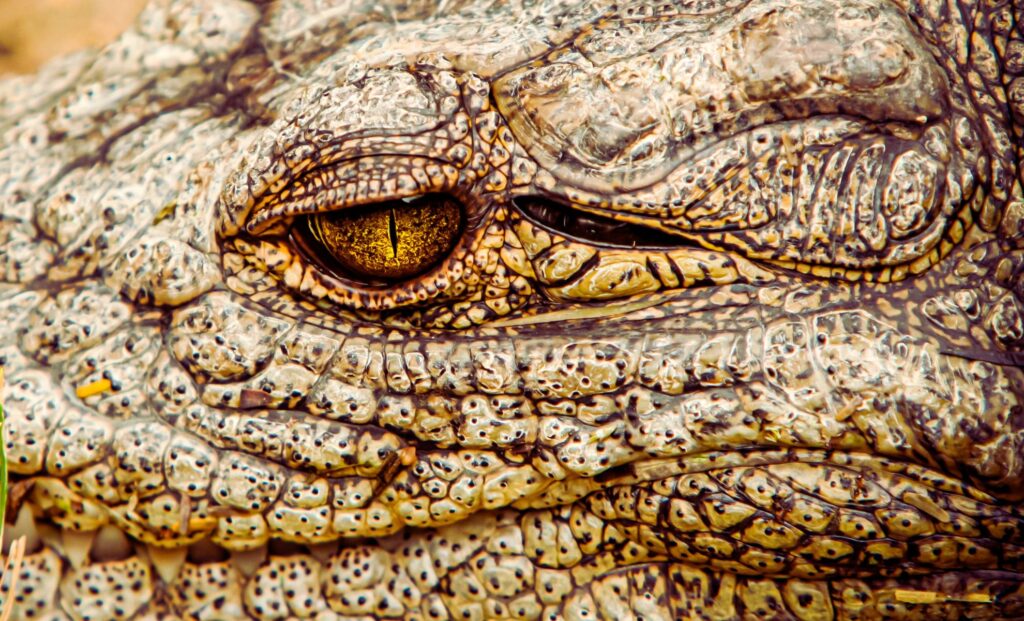
At 124 years old, Henry the crocodile holds the title of the world’s oldest known crocodile, and his life story is nothing short of extraordinary. This colossal reptile has not only lived an impressively long life but has also fathered thousands of offspring throughout his remarkable journey. Currently, Henry resides at the Crocworld Conservation Centre in South Africa, where he continues to thrive despite his advanced age.
A Colossal Creature with a Storied Past
Born around 1900 in the Okavango Delta of Botswana, Henry’s life has been filled with adventure and intrigue. Captured in 1903 by an elephant catcher named Sir Henry, he was named after his captor. After spending several decades in the wild, Henry was relocated to Crocworld in 1985, where he quickly became a central figure in their conservation efforts. Since then, Henry has mated with at least six females, and his keepers estimate he has fathered over 10,000 offspring during his time in captivity.
Henry’s size is equally impressive. The massive crocodile measures over 5 meters (16 feet 5 inches) from snout to tail and weighs a staggering 700 kilograms (1,543 pounds). To put that in perspective, the average Nile crocodile reaches around 4.5 meters (14.7 feet) in length and weighs roughly 410 kilograms (900 pounds). Henry’s sheer size makes him a true outlier, not just in terms of age, but in terms of physicality as well.
The Science Behind Longevity
Crocodiles, like Henry, are renowned for their incredible longevity. It is well-documented that many crocodilian species can live to be over 100 years old in captivity. Scientists believe that these reptiles may exhibit a unique phenomenon known as “negligible senescence,” a biological concept suggesting that some organisms, such as crocodiles, may not experience the typical aging process that other animals do. In other words, crocodiles may not actually die of old age but instead succumb to external factors such as starvation, accidents, or disease.
Some researchers have proposed that the secret to crocodile longevity lies in their gut microbiome. The microorganisms in their digestive systems may play a crucial role in maintaining their health and extending their lifespan. One study even suggests that the substances produced by the gut microbiome could contribute to their resilience and longevity. While it’s still unclear whether this theory holds up, it adds an intriguing layer to our understanding of these ancient creatures.
Life at Crocworld: A Sanctuary for the Aged
Henry is not alone at Crocworld. He shares his habitat with Colgate, another elderly crocodile who is estimated to be around 90 years old. Despite their age, both reptiles continue to live robust lives in their protected environment. Crocworld is dedicated to the conservation and care of these magnificent creatures, and Henry’s story is one of the most fascinating examples of crocodilian longevity.
While Henry’s precise birth date remains a mystery due to his wild origins, his birthday is celebrated annually on December 16, and he is set to turn 125 years old later this year. Henry’s legacy at Crocworld continues to inspire both visitors and conservationists alike, as he stands as a living testament to the resilience and durability of crocodiles in the wild.
The Broader Implications of Henry’s Story
Henry’s extraordinary life offers valuable insights into the biology and conservation of crocodiles. His longevity and vitality provide a living case study for researchers exploring the limits of animal lifespan and the factors that contribute to such remarkable endurance. Furthermore, Henry’s story underscores the importance of conservation efforts and the role that sanctuaries like Crocworld play in preserving biodiversity.
As Henry approaches his 125th birthday, the world watches with awe and admiration. His story not only captivates the imagination but also serves as a reminder of the wonders of the natural world and the enduring mysteries that continue to intrigue scientists and animal lovers alike.






